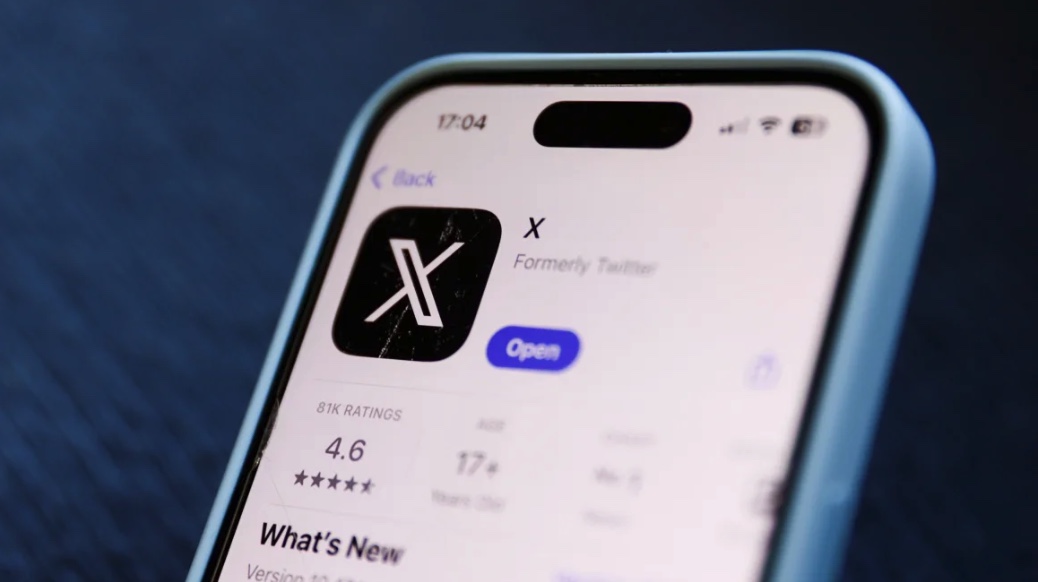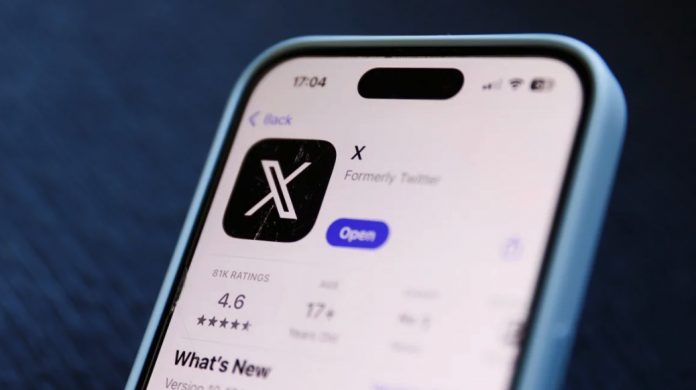เมื่อแพลตฟอร์ม X ได้เปิดเผยข้อกำหนดการใช้งานใหม่ ซึ่งจะมีผลบังคับใช้วันที่ 15 พฤศจิกายนนี้ ผู้ใช้งานจำนวนมากต่างสังเกตเห็นการเปลี่ยนแปลงที่สำคัญ
ในข้อกำหนดระบุว่า “การส่ง โพสต์ หรือแสดงเนื้อหาผ่านบริการของเรา หมายถึงท่านได้ให้สิทธิ์แก่เราในการใช้เนื้อหานั้นทั่วโลก โดยไม่มีสิทธิ์ผูกขาดหรือเรียกเก็บค่าลิขสิทธิ์ ซึ่งรวมถึงสิทธิ์ในการวิเคราะห์เนื้อหา เช่น การนำไปใช้ฝึกโมเดลการเรียนรู้ของเครื่อง (machine learning) และปัญญาประดิษฐ์ (AI) ของเรา”
กล่าวโดยสรุปคือ หากผู้ใช้ยังคงใช้แพลตฟอร์มต่อไป หมายความว่าพวกเขาได้ยินยอมให้ X ใช้ข้อมูลของตนเพื่อฝึกโมเดล AI
การใช้เนื้อหาในการฝึก AI กลายเป็นประเด็นที่มีการถกเถียงอย่างกว้างขวางในยุคที่เทคโนโลยีนี้กำลังเติบโตอย่างรวดเร็ว ศิลปินและผู้สร้างสรรค์ผลงานต่างกังวลว่าผลงานของพวกเขาบนแพลตฟอร์ม X อาจถูกนำไปใช้เพื่อฝึก AI ที่อาจมาแทนที่มนุษย์ในอนาคต ขณะเดียวกัน ผู้ใช้งานคนอื่นๆ ก็กังวลว่าข้อมูลส่วนตัวในโพสต์ของพวกเขาจะถูกนำไปใช้ในการฝึกโมเดล AI เช่นกัน หลายคนเริ่มลบภาพถ่ายตนเองออกจากบัญชี X ของพวกเขาแล้ว
การแก้ไขข้อพิพาททางกฎหมาย
หากผู้ใช้งานไม่พอใจกับข้อกำหนดใหม่ อาจต้องฟ้องร้องในศาลรัฐบาลกลางที่เคยพิจารณาคดีอื่นๆ ที่เกี่ยวข้องกับ X โดยเฉพาะในศาลแขวงสหรัฐที่ Northern District of Texas หรือศาลรัฐที่ Tarrant County, Texas ซึ่งตั้งอยู่ห่างจากสำนักงานใหญ่ใหม่ของ X ใน Austin กว่า 100 ไมล์
ข้อกำหนดใหม่นี้ระบุว่า ผู้ใช้ที่ยังคงใช้ผลิตภัณฑ์หรือบริการของ X ต่อไปหลังจากวันที่ 15 พฤศจิกายน จะถือว่ายอมรับข้อกำหนดที่ได้รับการปรับปรุงแล้ว
ความเปลี่ยนแปลงด้านความเป็นส่วนตัวของข้อมูล
Grok ซึ่งเป็น AI แชทบอทของ X ตกเป็นประเด็นถกเถียงมาก่อนหน้านี้ เนื่องจากเผยแพร่ข้อมูลเท็จเกี่ยวกับการเลือกตั้งในปี 2024 และสร้างภาพกราฟิกที่รุนแรงเกี่ยวกับนักการเมืองที่มีชื่อเสียง ขณะที่บริษัทใหญ่ๆ อย่าง Google และ Microsoft ก็เคยโดนวิจารณ์ในลักษณะเดียวกันเกี่ยวกับเครื่องมือ AI ที่มีปัญหา
ก่อนการปรับปรุงข้อกำหนดนี้ ผู้ใช้ X สามารถเลือกไม่ให้ข้อมูลของตนถูกนำไปใช้ในการฝึก AI โดยเข้าไปที่ “ตั้งค่า” จากนั้นเลือก “ความเป็นส่วนตัวและความปลอดภัย” และไปที่หัวข้อ “การแบ่งปันข้อมูลและการปรับเปลี่ยนข้อมูลเฉพาะบุคคล” ที่ซึ่งมีช่องให้ยกเลิกการอนุญาตให้ใช้ข้อมูลสำหรับการฝึก AI
แต่ในข้อกำหนดใหม่ยังไม่ชัดเจนว่าตัวเลือกนี้จะยังคงอยู่หรือไม่ เนื่องจาก X ระบุว่าขณะนี้บริษัทสามารถใช้เนื้อหาทั้งหมดบนแพลตฟอร์มได้ รวมถึงการใช้เพื่อฝึกโมเดล AI
แม้ว่าการให้สิทธิ์ใช้งานข้อมูลที่ครอบคลุมเช่นนี้จะไม่ใช่เรื่องใหม่สำหรับแพลตฟอร์มโซเชียลมีเดีย แต่ Alex Fink ซีอีโอและผู้ก่อตั้ง Otherweb ซึ่งเป็นแพลตฟอร์มข่าวสารที่ใช้ AI กล่าวกับ CNN ว่า ข้อกำหนดของ X ชัดเจนกว่าบริษัทอื่นๆ ที่ไม่เปิดเผยเจตนาในลักษณะเดียวกัน
ก่อนหน้านี้ X ระบุว่า โพสต์จากบัญชีที่ตั้งค่าเป็นส่วนตัวจะไม่ถูกใช้ในการฝึก AI ของ Grok แต่ภาษาที่ใช้ในข้อกำหนดใหม่ไม่ได้แยกความแตกต่างระหว่างประเภทบัญชี
อย่างไรก็ตาม ยังต้องรอดูต่อไปว่าผู้ใช้จะยังสามารถเลือกไม่ให้ข้อมูลของตนถูกนำไปใช้ได้หรือไม่ Fink กล่าวว่าบ่อยครั้งที่ข้อกำหนดทางกฎหมายของบริษัทมักให้สิทธิ์มากกว่าตัวเลือกที่มีให้ในเมนู
X changed its terms of service to let its AI train on everyone’s posts. Now users are up in arms

When X unveiled its newest terms of service, which go into effect on November 15, users quickly picked up on one change.
“By submitting, posting or displaying Content on or through the Services, you grant us a worldwide, non-exclusive, royalty-free license to make your Content available to the rest of the world,” the terms of service said, which includes the right to analyze any of that content “including, for example, for use with and training of our machine learning and artificial intelligence models, whether generative or another type.”
Basically, by continuing to use the platform, users will agree that X can use their data to train its AI models.
Using content to train AI has become a major issue as the technology booms. On X, artists and others in creative roles are fretting about their work being used – not just on X – to train computers that could someday replace human creators entirely. Other X users say they are concerned about personal information in their tweets being used that way. Some users said on the site they have already begun deleting photographs of themselves from their feeds.
And if users have any issue with those terms, they may end up in a federal courtroom that is favored by conservative activists and is already presiding over two lawsuits involving Musk-owned X.
According to the update, all disputes related to the terms will be brought to the US District Court for the Northern District of Texas or state courts in Tarrant County, Texas.
Tarrant County is more than 100 miles away from X’s new headquarters outside of Austin, Texas.
X’s terms said any users who continue to use their products or services on or after November 15 would be agreeing to the updated terms.
Changes to data privacy
Grok, X’s AI chatbot, has already been embroiled in controversy, from spreading false information about the 2024 election to generating violent, graphic fake images of famous politicians. Companies from Google to Microsoft have similarly come under fire for sometimes weird, completely off-base AI tools.
Before the most recent terms of service update, X users could opt out of sharing data by going to “settings,” then “privacy and safety.” Under the “data sharing and personalization” header, there is a tab for “Grok,” where users can uncheck the box that allows the platform to use their data for AI training.
But it’s not clear whether X’s new terms of service take away that option. X can now license all the content on the platform, including using it in its machine learning and artificial intelligence models.
While such broad licensing with few limitations is not uncommon for a social media platform, Alex Fink, CEO and founder of Otherweb, an AI-based news reading platform that targets misinformation, told CNN that what makes X unique is that its new terms “remove any ambiguity” in contrast to other platforms that don’t spell out their intentions.
Before, X said posts from private accounts would not be used to train Grok. But the language in the new terms of service does not differentiate between the types of accounts.
But only time will tell if you may still be able to opt out, despite the new terms. Fink said it’s fairly common for a company’s legal terms to give it more leeway than its own menu options allow.
By Ramishah Maruf, CNN

















